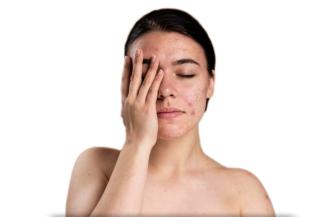
Getting rid of acne scars can be a challenging process, and it often requires a combination of treatments and patience. The best approach may vary depending on the type and severity of your scars. Here are some effective methods to help reduce or eliminate acne scars:
- Consult a Dermatologist: It's crucial to consult a dermatologist who can assess your specific case and recommend the most suitable treatments.
- Topical Products:
- Retinoids: Over-the-counter and prescription retinoid creams can help improve skin texture and reduce the appearance of scars.
- Vitamin C: Topical vitamin C serums can help with collagen production and brighten the skin.
- Chemical Peels: These can remove the top layer of the skin, improving the appearance of scars over time. Glycolic acid and salicylic acid peels are common options.
- Microdermabrasion: This procedure exfoliates the skin's surface, reducing the appearance of scars.
- Laser Therapy:
- Fractional Laser: Fractional laser treatments stimulate collagen production and can be effective for treating scars.
- Pulsed-Dye Laser: This can help with red or raised scars.
- Microneedling: Microneedling involves using tiny needles to stimulate collagen production, which can improve the texture of the skin over time.
- Dermal Fillers: For atrophic scars (depressed scars), dermal fillers like hyaluronic acid can temporarily smooth the skin's surface.
- Silicone Gel or Sheets: These can help flatten and fade scars when used consistently over time.
- Cortisone Creams: These are often used for hypertrophic (raised) scars.
- Sun Protection: Always use sunscreen to prevent further darkening of scars. UV exposure can make scars more prominent.
- Home Remedies: Some people find relief from natural remedies like aloe vera, honey, or rosehip oil. While these may help, they are not as potent as medical treatments.
- Time: In many cases, scars will naturally fade over time. Be patient and consistent with your chosen treatment.
Remember that what works best for one person may not work as effectively for another. It's important to follow your dermatologist's advice, be consistent with your chosen treatment, and understand that it may take several months to see significant improvements. Also, avoid picking or squeezing acne to prevent further scarring.
If your scars are causing significant emotional distress or are resistant to conventional treatments, you may consider more advanced options like surgical procedures (e.g., punch excision or laser resurfacing). Your dermatologist can discuss these options with you.






